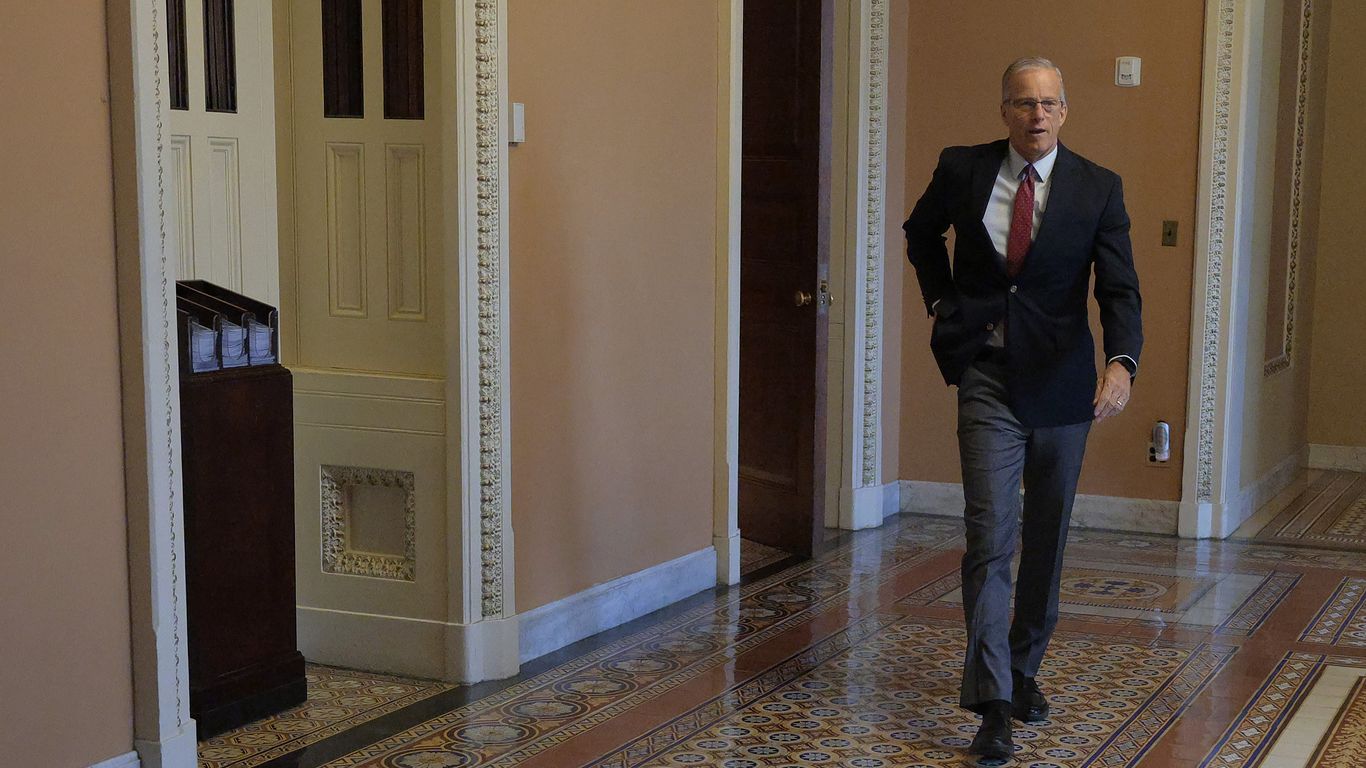
The idea of the "nuclear choice" has been a lingering problem in the Senate as members head out for their August break. This time period refers to a contentious procedural maneuver that might alter the legislative landscape considerably. As senators p.c. their baggage and leave Capitol Hill, the consequences of this feature preserve to resonate, casting a shadow over future legislative decisions and their ability effect on American governance.
The "nuclear alternative" involves a change to Senate guidelines to permit positive choices to be made with a easy majority vote, in place of the traditional 60-vote threshold. This approach has been taken into consideration a final-resort tactic, often considered as a manner to pass opposition and push thru controversial measures. Its potential use has been a topic of intense debate, highlighting the deep divisions inside the chamber and the broader political landscape.
With the August recess underway, senators are returning to their home states, but the discussions approximately the "nuclear option" are a ways from over. The recess affords an opportunity for lawmakers to engage with their materials, gather remarks, and recalibrate their strategies for the upcoming legislative sessions. However, the specter of the "nuclear alternative" looms big, influencing their conversations and shaping their priorities.
This procedural device has been a part of the Senate's vocabulary for years, however its importance has grown in recent months. The opportunity of invoking the "nuclear alternative" has grow to be a focus of political strategy, with both parties weighing the capacity benefits and downsides. For some, it represents a essential method to an cease, at the same time as others view it as a danger to the group's integrity and traditions.
The debate over the "nuclear option" underscores the broader demanding situations going through the Senate as it grapples with a polarized political surroundings. With vital issues at the horizon, consisting of budget negotiations and legislative priorities, the selection to hire this tactic could have a long way-achieving consequences. The stakes are excessive, and both events are acutely aware about the capacity effect on their legislative agendas.
As the Senate navigates these turbulent waters, the "nuclear choice" stays a powerful image of the tensions and divisions that outline contemporary American politics. Its capacity use serves as a reminder of the significance of compromise and collaboration in a deeply divided government. Finding not unusual floor may be more essential than ever, because the repercussions of unilateral actions could reverberate past the chamber's partitions.
The August recess offers a short respite from the depth of Capitol Hill, but it also serves as a crucial juncture for reflection and planning. Senators will go back with renewed attention and, probably, a clearer information in their constituents' priorities. Yet, the underlying issues remain, and the "nuclear option" will likely remain a point of rivalry as lawmakers go back to Washington.
Looking in advance, the Senate's method to the "nuclear choice" can be carefully watched by political analysts, stakeholders, and the public. Its potential implementation could redefine the Senate's function inside the legislative process, affecting the entirety from judicial appointments to key coverage projects. The outcome of this debate can have sizable implications for the balance of electricity and the future of American governance.
In a time of increasing partisanship, the choice to utilize the "nuclear choice" should set a precedent for destiny legislative battles. It raises fundamental questions about the Senate's function as a deliberative body and the significance of keeping its policies and traditions. Ultimately, the selection to hire this measure will reflect the wider dynamics at play inside the kingdom's capital.
As senators enjoy their smash and reconnect with their materials, the discussions surrounding the "nuclear option" will keep to spread. The stakes are excessive, and the choices made in the coming months may have lasting outcomes on the Senate's ability to characteristic effectively. As lawmakers put together to return to Washington, the course forward stays uncertain, however one issue is apparent: the "nuclear option" is an problem so as to no longer be without problems disregarded.






:focal(0x0:3000x2000)/static.texastribune.org/media/files/8642b9fa3aec025376e7d32a18c7b559/0801%20Redistricting%20Hearing%20BD%20TT%2010.jpg)



